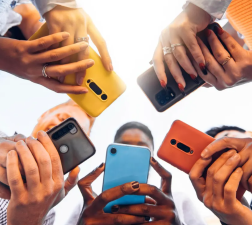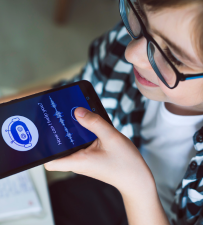Regarding whether artificial intelligence tools lead to addiction, existing research shows that the situation is complex and cannot be simply summarized as "yes" or "no." The usage patterns of AI tools are diverse, and their impact varies from person to person, depending on the frequency and method of use, individual psychological factors, and social environment. Some users, especially heavy users, may exhibit addictive behavioral patterns. However, this addiction risk is mainly concentrated among a small number of high-frequency users; most people maintain rational use.
AI addiction: from tool dependence to psychological addiction
OpenAI and MIT's joint experiment found that after adults interacted with AI for more than 5 minutes a day for 4 weeks, some people had physiological reactions similar to gambling or game addiction, such as dopamine dependence and withdrawal anxiety. AI has gradually become an emotional "substitute" for users through instant response and non-judgmental communication mode.
Who is more likely to be "addicted"?
The study screened 981 participants from different backgrounds and found that three groups of people are at the highest risk:
- High-pressure workplace people: rely on AI to handle work decisions, and even confide private emotions to AI;
- People with strong social needs: simulate intimate conversations through AI to make up for the lack of real social interaction;
- Technology-dependent users: accustomed to using AI to replace basic thinking, such as writing, schedule planning, etc.

"Hidden cost": psychological trap behind convenience
Although AI's "perfect response" relieves short-term pressure, it may weaken human autonomous decision-making ability. Experiments show that over-reliance on AI will lead to a decline in the willingness to socialize in reality and produce "emotional inertia" - preferring risk-free virtual interactions rather than complex interpersonal relationships.
In a future where AI floods our workforce and emotionally engaged and intelligent AI agents seem inevitable, our overconfident technologists offer us a consolation: AI will solve loneliness. To them, it’s just a matter of when, not how or why we fall in love with AI.
One complication in our romantic relationships with AI is that users don’t seem to want an artificial partner who can match us intellectually and emotionally. This could negatively impact our romantic relationships with human partners.
Consider the trend of AI chatbots like ChatGPT and Replika, where users primarily seek simple, effective affirmation from their artificial partners. These chatbots can play platonic roles, or perhaps ever-dedicated life coaches, but many users can’t resist and demand more romantic and erotic interactions, crafting an ideal partner who provides unconditional support without having to deal with the messy demands of relationships.
Additionally, our growing acceptance of non-traditional relationship structures, such as polyamory and threesomes, has made the idea of an artificial “third person” more palatable, an emotional complement that combines the roles of partner and therapist, filling emotional gaps without threatening existing relationships.
When young people flexibly integrate AI into their lives, the impact of AI companions may be similar to the impact of social media on the brain. This stimulus verification, known as "dopamine dumping", is likely to increase our sensitivity and dependence on rewards and affect our tolerance for natural conflicts in interpersonal relationships.
The instant chat provided by existing AI (especially large language models) meets the emotional needs of the above-mentioned minority users to a limited extent, but it still fails to completely replace contact with real people, which causes these users to feel uneasy and lost while developing emotional dependence on AI. These users may feel more lonely due to individual differences, various changes in their lives, etc., which prompts them to seek alternatives to contact with others, such as AI chat tools. The AI chat provided by existing large language models tends to learn and adapt to users and affirm their input, which may inadvertently create an echo chamber when users express negative emotions and more or less strengthen users' negative emotions. The performance improvement of AI chat tools may accidentally overlap with the psychological problems of some users, which seems to be related but is actually unrelated.

